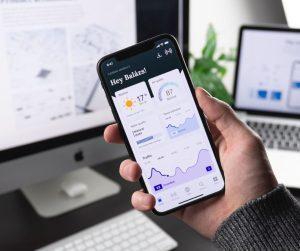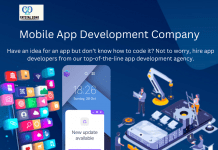Top-rated app development technologies in 2023 – How to build better and faster apps
Businesses can strengthen their online presence and maximize their reach by using the best app development technology in 2023, which makes app development faster and easier.
Since mobile apps have become so popular in today’s world, frameworks are becoming increasingly efficient, allowing app developers to accomplish what once took weeks in days.
When you choose an app development framework that is both high-performing and low-cost, your business will gain an edge over the competition.
Developing apps in 2023 requires frameworks
A number of cross-platform app development frameworks are making significant breakthroughs, including Xamarin, Phonegap, Ionic, Reactive, etc. The previous cross-platform apps did their job but weren’t as smooth and suave as one would have expected. Recently, however, app development frameworks have become much more sophisticated, which results in faster development cycles and better-looking and functioning apps across all platforms.

More and more consumers are turning to apps for their every need as we enter the new year. Mobile apps are key to meeting customers’ expectations and helping businesses grow, so business owners rush to develop them. It is critical to them that apps are ready in a few weeks rather than several months, and that the cost is reasonable. You get exactly that with modern app development frameworks.
In this article, we will explore the latest app development frameworks for 2023 that will boost your business’s digital transformation.
1. Flutter
Essentially, Flutter is a UI toolkit for creating visually appealing apps that perform like native apps. You can use a number of widgets and build an app of your choice using the C++ programming language and a variety of building blocks.
As you edit the code, you can see the changes instantly as you make more precise edits. By using Flutter development, you can build native, Android, iOS, and web apps with just one codebase. Flutter is an instant favourite with developers because of its top-notch navigation, scrolling, fonts, and icons.
Flutter’s key features include:
- Material design
- Hot reload
- Widgets
- Material design
- Native performance
Popular apps built with Flutter:
- Alibaba
- Google Ads
- Reflect
- KlasterMe
2. Ionic
One of the most popular app development frameworks today is Ionic, which will continue to be a developer’s favourite for years to come. You can build rich digital experiences for your audience with Ionic desktop, web, and mobile apps. With it, you can develop apps that work on Android, iOS, web, desktop and more, leveraging your talent and resources already available. Using Ionic, you can fully customize how your app looks and feels.
Some of the most notable Ionic features are:
- Native device features are easily accessible
- Storing and accessing data offline in a secure manner
- Full access to native SDKs
- Integrate seamlessly with third-party libraries, backends, or legacy systems
- Multiplatform and device deployment
Apps built with Ionic include:
- GE
- Mastercard
- Burger King
- Target
- NHS
- BMW
3. React Native
A thriving app development framework comes from the house of Facebook: React Native. With just one codebase, developers can build apps for Android, iOS, desktop, or any other platform. Because React Native is based on JavaScript, it is all the more appealing to developers since most of us have JavaScript backgrounds. Fast, intuitive, and responsive apps are made with RN.
Best features of React native include:
- Code reusability at its maximum
- Libraries from third parties are supported in abundance
- Predictive user interface APIs
- Live to reload
- Faster development
Apps built with React Native include:
- Bloomberg
- Soundcloud
- UberEats
4. Xamarin
Xamarin remains one of the most popular cross-platform app development platforms and will be so even in 2023, as one of the earliest players in the cross-platform app development revolution. Microsoft’s Xamarin helps developers build high-performance apps for all platforms and devices using the C# and .NET frameworks. In addition to apps, APIs, components, and backends, developers use them for many other purposes.
5. Swiftic
In 2023, Swiftic will be a platform to watch. It emphasizes small business needs with some of the best customer-facing features. There are also integrations with social media and digital payments, as well as Shopify and Magneto. Developers rated it highly for ease of use and flexibility.
In 2023, these are the 5 best app development frameworks for app developers to use to develop apps that will help clients grow their businesses.
It is important to choose the right framework for the business based on its specific needs and resources. When it comes to choosing the right technology for app development, budget, security concerns, and timeline all play a role.
Conclusion
A number of app development frameworks will be available in 2023, so it’s important to choose the one that’s right for you. For the best part of a decade, React Native, Flutter, and Ionic have led the pack, followed by Xamarin and Swiftic. If you wish to develop a high-performance cross-platform app in 2023, either of these will work perfectly for you. There is no right or wrong answer; it only depends on what is best for your business.



